Filter by
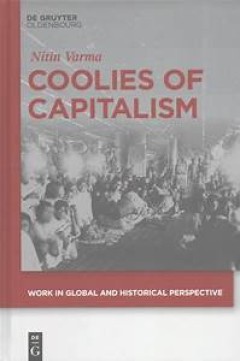
Coolies of capitalism : assam tea and the making of coolie labour
Coolie labour was often proclaimed as a deliberate compromise straddling the regimes of the past (slave labour) and the future (free labour). In the late 1850s, the locals were replaced by labourers imported from outside the province who were designated "coolies". Qualifying this framework of transition and introduction, this study makes a case for the "production" of coolie labour in the histo…
- Edition
- -
- ISBN/ISSN
- 9783110463170
- Collation
- 242p. : ill
- Series Title
- -
- Call Number
- 331.090954 NIT c
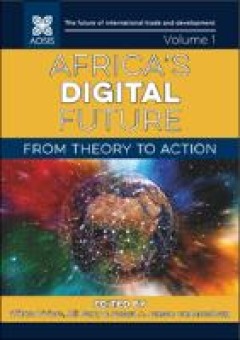
Africa's digital future : from theory to action
The main thrust of this book is to examine whether Africa is in a position to benefit from the digital age, given the continent’s many development challenges and slow adoption of digital technologies. While there is substantial literature on the digital economy and the quickening pace of the Fourth Industrial Revolution (4IR), comparatively little research has been conducted on what the digit…
- Edition
- -
- ISBN/ISSN
- 9781776341696
- Collation
- xxxvii, 382p.: ill.
- Series Title
- -
- Call Number
- 332.042 AFR a
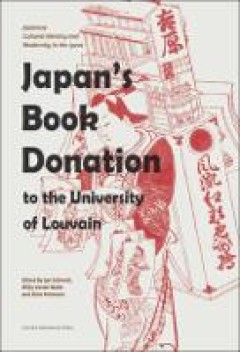
Japan's book donation to the University of Louvain : Japanese cultural identi…
Companion to the exhibition “Japan’s Book Donation to the University of Louvain”, KU Leuven University Library, 28 October 2022 - 15 January 2023 With more than 3,000 titles in almost 14,000 volumes, the 1920s Japanese book donation to the University of Leuven/Louvain constitutes an invaluable time capsule of Japan’s pre-modern culture in all its diversity and richness. A century on, th…
- Edition
- -
- ISBN/ISSN
- 9789461663283
- Collation
- -
- Series Title
- -
- Call Number
- 950 JAP
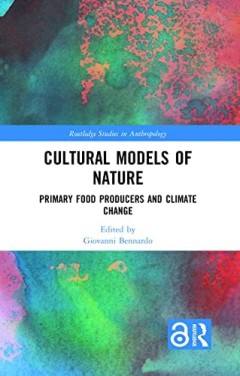
Cultural models of nature
Drawing on the ethnographic experience of the contributors, this volume explores the Cultural Models of Nature found in a range of food-producing communities located in climate-change affected areas. These Cultural Models represent specific organizations of the etic categories underlying the concept of Nature (i.e. plants, animals, the physical environment, the weather, humans, and the supernat…
- Edition
- -
- ISBN/ISSN
- 9781351127905
- Collation
- 394p. : ill.
- Series Title
- -
- Call Number
- 338.19 CUL c
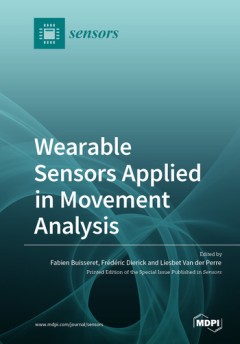
Wearable sensors applied in movement analysis
Recent advances in electronics have led to sensors whose sizes and weights are such that they can be placed on living systems without impairing their natural motion and habits. They may be worn on the body as accessories or as part of the clothing and enable personalized mobile information processing. Wearable sensors open the way for a nonintrusive and continuous monitoring of body orientation…
- Edition
- -
- ISBN/ISSN
- 9783036558592
- Collation
- vii, 143p.; ill.
- Series Title
- -
- Call Number
- 610.28405 WEA w
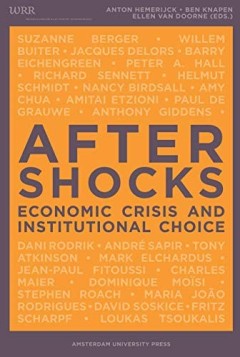
Aftershocks : Economic Crisis and Institutional Choice
Aftershocks was written in the midst of the deepest economic crisis since the Great Depression. Although it would be premature to presume to identify the repercussions of the crisis, it is clear that it will have profound aftershock effects in the political, economic, and social spheres. The book contains essays based on semi-structured interviews with leading scholars, European politicians and…
- Edition
- -
- ISBN/ISSN
- 9789048511853
- Collation
- 288p
- Series Title
- -
- Call Number
- 338.542 AFT a

Virtual reality methods: a guide for researchers in the social sciences and h…
Since the mid-2010s, virtual reality (VR) technology has advanced rapidly. This book explores the many opportunities that VR can offer for humanities and social sciences researchers. The book provides a user-friendly, non-technical methods guide to using ready-made VR content and 360° video as well as creating custom materials. It examines the advantages and disadvantages of different approach…
- Edition
- -
- ISBN/ISSN
- 9781447360773
- Collation
- vii, 159p : ill.
- Series Title
- -
- Call Number
- 001.30721 PHI v

The Merchant in German Literature of the Enlightenment
John Van Cleve analyzes the influence of the merchant class on what Leo Balet termed the 'Verburgerlichung' (the 'becoming middle-class') of German literature during the eighteenth century. He describes the origins and development of the class and examines its successive images in works by Haller, Schnabel, Borkenstein, Luise Gottsched, J. E. Schlegel, Gellert, and Lessing. Between the years 17…
- Edition
- -
- ISBN/ISSN
- 781469656878
- Collation
- xiii, 196p : ill
- Series Title
- -
- Call Number
- 830 JOH m
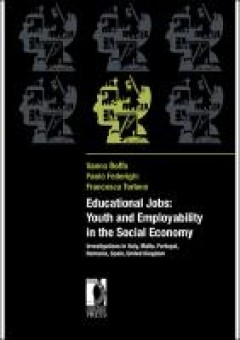
Educational Jobs: Youth and Employability in the Social Economy
In Europe the social economy employs almost 15 million workers. During the crisis years, unlike other sectors, it has often generated an increase in jobs. The aim of this comparative study is to investigate how to allow the supply and demand for young people to meet in the different types of social economy bodies. In particular, it concentrates on the problem of how to bring into line initial u…
- Edition
- -
- ISBN/ISSN
- 9788866558293
- Collation
- 218p : ill
- Series Title
- -
- Call Number
- 330 EDU e
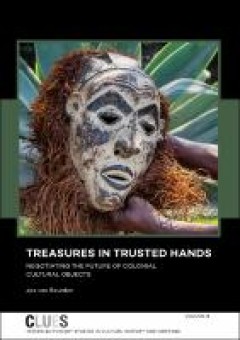
Treasures in Trusted Hands : Negotiating the Future of Colonial Cultural Objects
This pioneering study charts the one-way traffic of cultural and historical objects during five centuries of European colonialism. It presents abundant examples of disappeared colonial objects and systematises these into war booty, confiscations by missionaries and contestable acquisitions by private persons and other categories. Former colonies consider this as a historical injustice that has …
- Edition
- -
- ISBN/ISSN
- 9789088904417
- Collation
- 290 p. : ill
- Series Title
- -
- Call Number
- 301 JOS t
 Computer Science, Information & General Works
Computer Science, Information & General Works  Philosophy & Psychology
Philosophy & Psychology  Religion
Religion  Social Sciences
Social Sciences  Language
Language  Pure Science
Pure Science  Applied Sciences
Applied Sciences  Art & Recreation
Art & Recreation  Literature
Literature  History & Geography
History & Geography